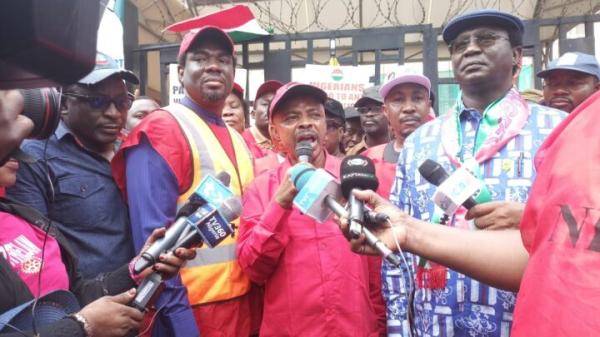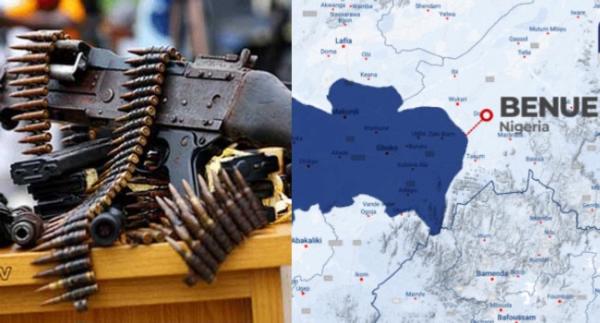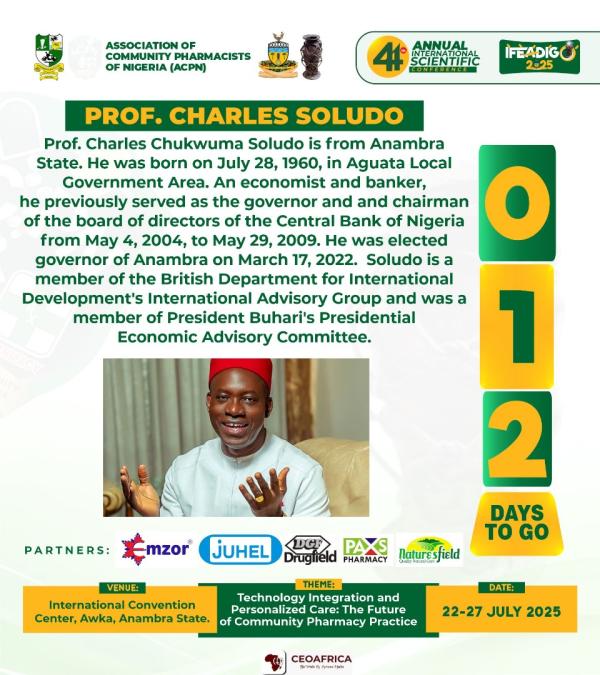
Nigeria Labour Congress (NLC), on Tuesday, warned that there would be no further warning before the next strike in 30 days if the federal government did not keep to its current agreement with NLC and Trade Union Congress (TUC).
Speaking on ARISE News Channel, Joe Ajaero, stated that enough time had been given to the President Bola Tinubu administration to take appropriate action to cushion the suffering in the country and avoidable deaths among the masses occasioned by the harsh economy, but the government continued to ignore labour.
NLC had suspended its planned indefinite strike on Monday night. It said the industrial action was prompted by mass suffering following the removal of fuel subsidy, and crisis in foreign exchange market and its ripple effect on Nigerian workers.
The suspension of the planned nationwide strike followed the signing of a 15-point Memorandum of Understanding (MoU) between the two main labour centres and the federal government.
Ajaero disclosed that NLC initially decided to return to the negotiating table after shunning all talks with the government due to pressure from many Nigerians, who also raised issues about the likely negative effect the proposed strike would have on the underprivileged and vulnerable countrymen and women.
He stated, “When we had the first meeting with them, we went back to our organs. And even when our ultimatum expired, we still went back. That’s where we draw our power and mandate.
“If at the end of the one month, for all that was agreed, we are not satisfied, we will get back to the same organs and get a fresh mandate because it’s important that we understand that an activity that was suspended is not called off.
“We do not need to give a fresh ultimatum (to the government). We will go back and re-evaluate what we had achieved and the level of compliance and efforts made so far in ensuring that the agreements are honoured.”
Ajaero said by now, if the political will actually existed, the Compressed Natural Gas (CNG) buses should have been ready, while salary awards and the promised cash transfer ought to have been implemented.
The labour leader stressed that the results of the CNG programme, for instance, should have been trickling in by November. He explained that this was clearly stated in the agreement that had not been implemented.
“On the issue of refineries, what we said was that there would be a joint visitation to the Port Harcourt refinery to look at the state of preparedness for it to be in operation by December,” Ajaero stated.
He said labour rejected the N25, 000 announced by Tinubu before N35,000 was eventually approved across board, and pointed out that the government assured that the wage award would exist until a minimum wage law was signed into law in about six months.
He queried, “There were some other elements that came in, like what happens to the lower income bracket and the pensioners. Because there are some pensioners that earn N5, 000 to N10, 000. So, how do you classify this if you are talking of the poorest of the poor?”
Ajaero said with the commitment from the government, jubilation had erupted in the workers’ camp because for decades what they were able to negotiate was just minimum wage of N30, 000 while within 24 hours, the union was able to work out an award of N35, 000.
The NLC president pointed out that the labour movement was now looking at a way of operationalising the moderate gains to go round the private sector, local government and state workers since the federal government could not dictate to the other tiers of government.
He said even though the 46-year-old NLC had a lot of powers, it usually did not deploy them for obvious reasons, promising that workers power will always be used with a lot of restraint.
He stated that although the responsibility of the labour union was to its members, if the CNG programme and the Value Added Tax (VAT) begin to work, it will benefit all Nigerians.
Ajaero stated, “The first meeting on Friday, we decided not to be part of it because we have discovered the attitude of Nigerian government holding meeting on the eve of our ultimatum.
“But pressure came and Nigerians started talking about the economy and the effect it would have on the common man. So we had to even meet on a Sunday and a public holiday.”
He said the strike was suspended to watch the level of progress, stressing that whatever is agreed must be registered in court so that the parties understand their obligations.
According to him, “The crisis is not over because of the era of broken promises and because of the trust gap between Nigerian leaders and the governed. Now, it is difficult to close that gap by mere promissory notes.
“If you listen to the president, you will discover that all were promises and promissory notes. We could have dismissed that, but we have decided how we can turn those promises to reality.
“It’s not as if the promises will be accomplished in 30 days’ time, but during that time, there are some of them that can be achieved.”
Ajaero also said the unions insisted that copies of the MoU signed between it and the federal government should be deposited at the courts so that neither of the parties could renege on the agreement without judicial consequences.
He said the Nigerian people had gone through a lot of pain and anguish in the past five months.






















